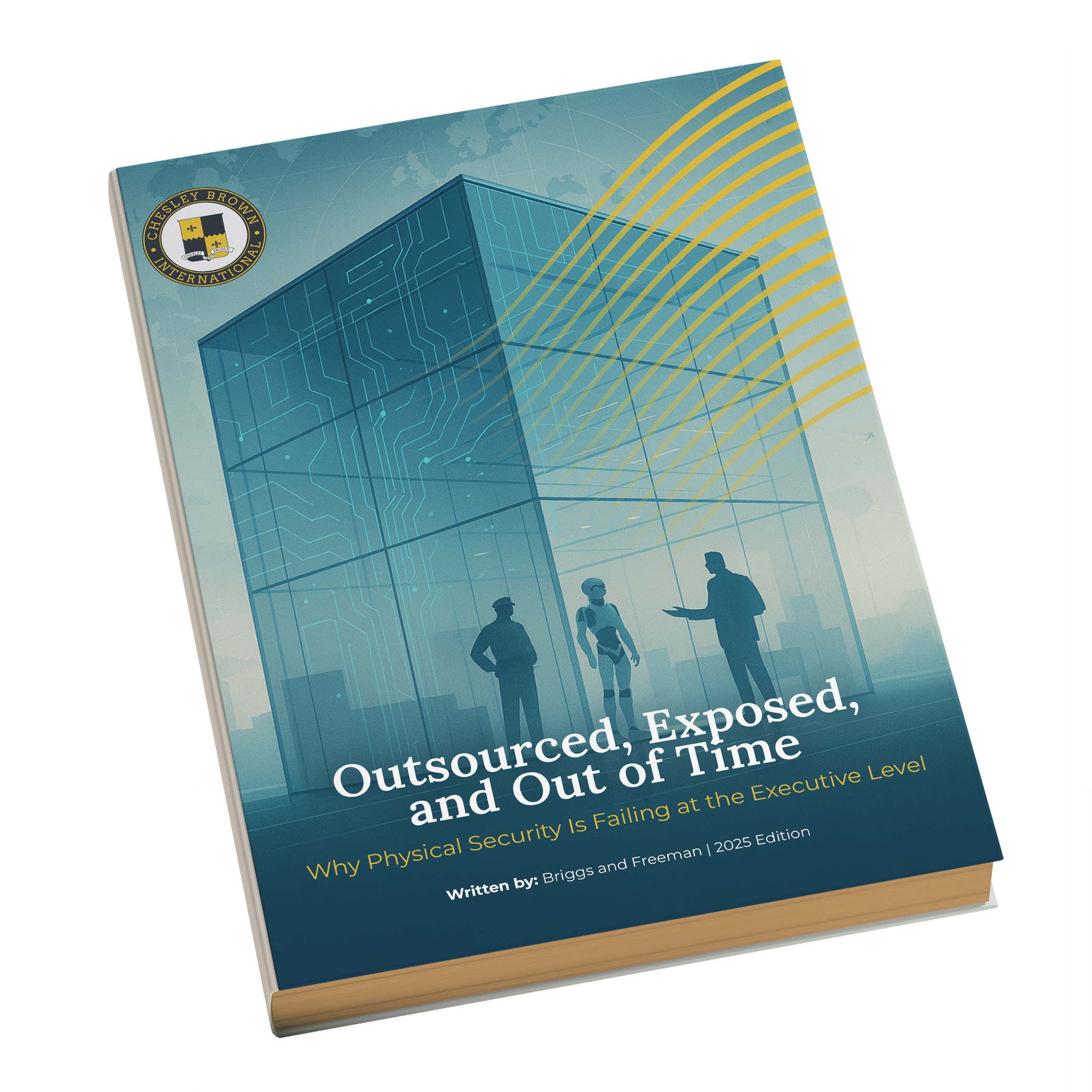Best Strategies for Building Resiliency

How to position your business for uncertainty
If there is one aspect of business that is certain, it’s uncertainty. It might also be the understatement of the year to say that 2020 has had its fair share of uncertainty. Although you may feel like the odds are stacked against you at times, you may find comfort in the fact that everyone, including the most successful entrepreneurs, has experienced some sort of crisis. The biggest difference being that the successful ones learned how to navigate risk, or better still– embraced it. As a business owner, you always hope for the best. Unfortunately, that’s not how reality works. Therefore, understanding how to prepare for economic risk is crucial, especially in light of the coronavirus outbreak. Before we get started let’s look at the biggest economic risks companies will have to navigate in the near future.
Health of the Economy
If there is a good lesson that companies can learn from the recent recession, it’s that even small mistakes, when multiplied over time, have big impacts on the financial system at large. When an entire country’s financial system takes a hit, organizations need a well rehearsed contingency plan in place to reduce any unnecessary losses, simply, so they can stay afloat and bounce back when the financial system begins to recover. This is one economic risk you need to have a plan for.
Public Health Risks
It is nearly impossible to predict when an illness will affect your workforce, whether something such as a common flu bug sneaks into the office or something as devastating as the coronavirus. These outbreaks can cause a cascading effect that ripples through the organization and your industry. In preparation, leadership and your risk management team should identify all vulnerable areas which could cause a disruption in the process of receiving supplies, producing and/or providing your product and services to your clients. In response, create a contingency plan for all at risk areas.
Shifting Consumer Preferences
Some of the most common reasons companies go out of business is because they cannot keep up with their clients’ needs or recognize the change in market demands. Most recently, we have witnessed a shift in consumer behavior due to social distancing demands . This will likely continue for the foreseeable future as services or products that fill a ‘want’ may continue to struggle in the coming months and years. Be sure to monitor the ever-changing markets that drive and affect consumer behaviors and be certain to adjust quickly and accordingly. Differentiation and adaptability may become a major deciding factor for consumers.
How to Prepare for Economic Risk
Stay Grounded in the Present
One of the best ways to prepare for economic risk is to stay informed about what is going on in the world, paying special attention to monetary indicators. This includes the selections made by world leaders that would affect economic growth or supply chain management. This way, you remain one step ahead of your competition.
Perform Regular Assessments
Being a forward-thinking organization will position you ahead of your competition. You review budgets every year, right? What about risk assessments or technology risk? Are you constantly monitoring and reviewing your business plan to ensure that your company is meeting your customers’ needs and desires? It is a lot to manage, but doing so will prove beneficial while managing changes in the demands of your customers. The goal is to uncover any opportunities the current crisis presents, and find a way to seize those available opportunities .
Foster Professional Relationships
When a crisis occurs, will you be able to get back on your feet alone? Perhaps — it’s not impossible, but in a hyper-connected world it is becoming exceedingly difficult. A robust network of professionals in your corner can make things easier. This might seem obvious, but one of the best investments you can make for your business is developing positive professional relationships. For instance, your suppliers are much more likely to help support you during tough economic times if you’ve been timely with your payments, help support their business and take the opportunity to thank them. It sounds simple, but a personal touch can go a long way. Never miss an opportunity to reach out just to say hi, pass along referrals, opportunities and compliments, say congratulations, or wish them a Happy Anniversary.
Be Vigilant and Respond Quickly
One of the best approaches to managing risk is to constantly be aware of it. There is nothing more important than listening, and preparing for what may go awry . If you are interested in learning some effective strategies for how to get a pulse of what is happening around your business, I recommend reading “Sense and Respond,” by Jeff Gothelf and Josh Seiden. Use the recommended strategies to empower your employees to spring into action when needed.
Keep Calm
This may seem contrary to what was stated directly above, however, it really isn’t. Being vigilant is not the same as nervously waiting for something to occur and then having a knee-jerk reaction for resolution. This will absolutely make things worse. You are working in a post-recession landscape. So, you need to understand how to manage sudden developments and instability competently, calmly and decisively. Small mistakes can compound over time.
Cultivate and Protect Your Good Reputation
You aren’t simply preparing your business for the effects of uncertainty, you are also preparing for failure, success, and the entire space in between. How you prepare for economic risk isn’t just about credit lines and supply chains. Your standing in the community really does matter. When times are hard, if you have a reputation for being an upstanding and trustworthy community member, you will never be left to fend for yourself. By doing right by your customers, business partners, and employees, they will instinctively want your organization to thrive, and will do everything they can to help.
Prepare For a Variety of Scenarios
The thing about economic risk is in the name. There is no way to predict everything that will happen. You can’t predict the weather, the political climate, or many other factors, and those all have an impact on uncertainty. Hedge your bets by preparing for a variety of different outcomes that you actually do have control over and prioritize those in order of likelihood. Then outsource the areas outside your realm of expertise.
For instance, research ways to reduce workplace accidents. Find a way to inspire your personnel to push their productivity, or reduce turnover. Think of methods that can enhance your products or offerings, or reduce losses. When economic stability is a factor, try to experiment with pricing models or new advertising channels. There is always the threat that none of your plans will bear fruit, but then again, what is the opportunity cost of inaction?
Tweak And Refine Your Business Plan
Step back for a moment and revisit your current business plan. Give yourself time to make adjustments while considering your current situation. Start your review by speaking with your clients, studying your direct and indirect competition, and speaking with stakeholders. It is also a good idea to ask your personnel for input. Sometimes the individuals who interact with your clients most often, understand their wants and needs on a different scale.
Recognize Hidden Opportunities for Growth
Larger corporations are not usually hit as hard by economic uncertainty as smaller organizations. As such, smaller companies must be greater innovators in order to remain viable. When you’re planning for how to prepare for economic risk, you need to continuously reassess every operational component of your enterprise. This also means recognizing the indicators that tell you when you are ready for growth. For instance, assuming you have regular, habitual customers, are they asking about additional products, new services, or advice on ancillary issues? If so, that may be an opportunity for growth. Internal factors like sustained profit growth, industry consolidation, and digital transformation may also play a major factor in deciding whether or not to expand.
Know How To Read The Numbers (and the room)
When preparing your company for uncertainty in addition to growth, it’s very important to know which economic numbers are important and which aren’t. You should be able to interpret all of your key performance indicators (KPIs) so that you can make important adjustments as soon as the economic waters get choppy.
You don’t need to have an economics or a data science degree. You don’t even need to know what all the numbers mean. You just need enough information to recognize when you are doing well, and when you are not. Establishing your KPIs with your entire risk management team is a great way to ensure there is general buy-in and synergy between the different components of your crisis management plan. For example, you should know if the list of business leads you have is growing, and what that conversion rate is. You should also understand the average time it takes to complete a transaction, and what the average transaction amount is.
Additionally, if possible, daily conferences with your sales team, can help you achieve a better understanding of “leading” and “lagging” indicators. In terms of finances, you want to track expenses, financial projections, taxes, and income margins.
Diversify Your Portfolio
If your business only produces one product or provides a single service, it’s far more susceptible to risk. How will you create opportunities for growth if the market suddenly shifts and your one product is no longer needed? New competition, shifting consumer habits, technology, market saturation, crime, and even weather are potentially disruptive events that can shift the economic landscape overnight. By offering complimentary products or services you can tap into new markets, and provide yourself with a bigger safety net.
Improve Your Time Management Skills
You may assume that there’s no connection between time management and managing risk in the business world, but it plays a major role. By evaluating the way you and your team manage your time, you can identify and focus on the tasks that generate the most value for the organization.
For instance, if you spend all your time developing a new product you won’t have enough time to develop advertising strategies to make more sales. Think of it like growing a garden. If you don’t protect it from pests or weeds they will eventually overtake your garden. If you have trouble with time management you might try grouping similar responsibilities that might be related to one another.
Switching back and forth between tasks makes you use different parts of your brain, which reduces your response and processing time. By grouping similar tasks at one time, it allows you to work faster and focus more. You should also be on the lookout for opportunities to automate or delegate tasks. Automation is a powerful new tool for repetitive tasks like scheduling, data entry, invoicing, and RFPs. With more time on your hands you should have more time to consider what to do when economic risk strikes.
In Summary
We can’t tell you when or in what form a crisis will take. That doesn’t mean you can’t be prepared. Learning how to prepare for economic risk is a time-consuming and challenging process, but despite the hardships, every crisis is an opportunity for reinvention and improvement. Many business owners struggle to fully grasp the myriad risks they face. That’s why we’ve built a framework that teaches businesses how to anticipate and navigate risk before it becomes a crisis. Be sure to read Chesley Brown’s “7 Step Guide for Building Business Continuity Plans that Actually Work” for our complete list of tips and strategies for preparing for and navigating a crisis effectively.
Additional Resources
Sign up!
For industry-leading guides and analysis sign up for our blog below.
Latest News
Holiday Safety Tips
3 practical ways to stay safe in 2020 We’ve all heard humorous holiday tales. They make for great entertainment around the table during a turkey dinner. You know the stories–e.g., the time Uncle Frank fell…
Election Day: Planning for Civil Unrest
Protecting your business in the event of election day civil unrest requires planning. Here we discuss four proven strategies for Civil Unrest
The Transformational Power of Threat Assessments
Ignoring Risk won’t make it go away Cyber crime is one of the most insidious threats facing businesses. As reported here, more than 50% of businesses have suffered cyber attacks–70% of them being small to…
3 Practical Strategies to Protect Your Small Business During Covid-19
October 15, 2020 / Justin Hayes Ensure the Future of Your Company Small to medium-sized enterprises (SMEs) comprise a massive portion of American industry. In fact, 99% of all businesses have less than 500 employees;…
The Anatomy of a Crisis Management Plan
4 key strategies to protect your business against risk By Justin Hayes No executive expects a crisis to strike. But every day organizations fall prey to the unforeseen. One study found that 40% of businesses…







